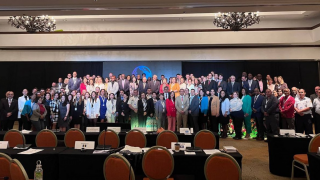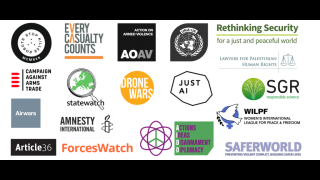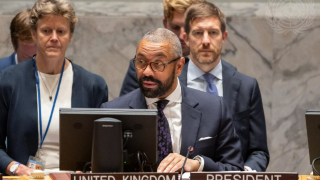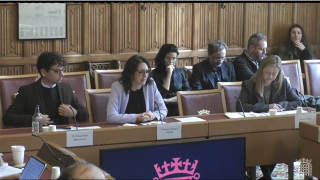
On 24 February 2023, 33 states from Latin American and the Caribbean issued a historic call from the region for “the urgent negotiation of an international legally binding instrument on autonomy in weapons systems.” The communiqué was the result of a two-day regional meeting on the social and humanitarian impacts of autonomous weapons. The conference was hosted by the Costa Rican government in San José and attended by governmental experts from Latin America and the Caribbean, the ICRC, UN agencies, academics and civil society.
Currently, there is no specific international law to regulate the use or development of autonomous weapons. UNA-UK, together with the Stop Killer Robots campaign, has been calling for this legal gap to be addressed for over ten years. As the deployment of systems with autonomous capabilities has been reported in Ukraine and Libya, this objective has become an urgent priority.
The UN Secretary-General, Antonio Guterres has called autonomous weapons “politically unacceptable and morally repugnant”, but until now, the issue has been gridlocked in the Geneva-based weapons forum called the UN Convention on Conventional Weapons (CCW). Discussions in the CCW have dragged on for 10 years with little to show due to the actions of a minority of militarised states that are unwilling to negotiate a new legal instrument on this issue, including the UK, the US and Russia.
Costa Rica’s bold move to convene states in its region outside of the consensus-bound CCW has opened up the political space for this emphatic call which is reminiscent of the state-led conferences which built momentum for a treaty to ban nuclear weapons.
Significantly, the outcome document calls for both regulation and prohibitions, suggesting that these 33 states would like to see an outright ban on certain autonomous systems, such as those that target humans. This is consistent with the treaty structure that the Stop Killer Robots campaign has been calling for.
UNA-UK’s Head of Campaigns, Ben Donaldson, was in Costa Rica to support the initiative and attend the associated Digital Dehumanisation conference, hosted by Stop Killer Robots. Mr Donaldson said:
“After 10 years of gridlock at the UN in Geneva, momentum is growing for a ban on killer robots. When the world needed principled political leadership, Costa Rica stepped forward and brought 33 Latin American and the Caribbean states together to declare that there must be a legal red line drawn to stop the dehumanisation of warfare. And support is not isolated to this region - we now have a clear majority of states supporting this route forward. While the UK maintains it will not develop lethal autonomous weapons systems, so far it has stopped short of joining the call for new international law. It’s time the UK thinks again”
UNA-UK hopes this historic call will be replicated in other regions, and opportunities outside of the CCW will be urgently pursued to negotiate a legally binding treaty to regulate autonomous weapons. We also hope the new UK parliamentary select committee looks carefully at this regional position and at the contributions made at the conference to inform their inquiry scrutinising the UK Government’s position on these weapons.
Read more
- Read the Belén Communiqué
- Visit the Stop Killer Robots global campaign
- Visit the Stop Killer Robots UK campaign
Photo: Leaders from 33 Latin America and the Caribbean States after adopting the Belén Communiqué in Costa Rica (February 2023). From: Costa Rican Government Twitter.





